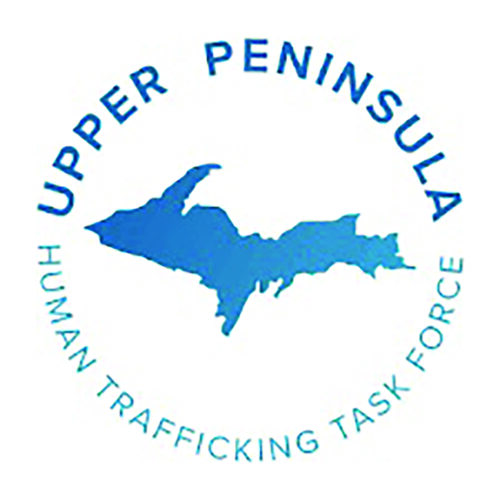Raising awareness of regional task force | News, Sports, Jobs – The Mining Gazette

HOUGHTON — The goal of National Human Trafficking month is to raise public awareness of its prevalence. However, Michigan is not immune.
According to the Upper Peninsula Human Trafficking Task Force (UPHTTF) website, human trafficking affects individuals across the world and right here in Michigan. It is commonly regarded as the second largest criminal enterprise after drugs. Human trafficking affects every community in Michigan across age, gender, ethnicity and socio-economic backgrounds.
UPHTTF defines human trafficking as a form of modern-day slavery in which people profit from the control and exploitation of others. This crime occurs when a trafficker uses force, fraud, or coercion to control another person for the purpose of engaging in commercial sex acts or soliciting labor or services against his/her will. Victims include children and adults who are forced, deceived or coerced into commercial sex acts and/or labor or services against their will and who often receive little to no compensation.
The task force's website states that its mission is:
Building and maintaining a collaborative effort in combating the human trafficking problem in Michigan's Upper Peninsula with a victim-centered, trauma-informed, and multidisciplinary approach.
To achieve the mission, the task force set forth the following goals:
- Identify victims of all forms of human trafficking.
- Investigate and prosecute human trafficking cases at the local, state and federal levels.
- Address the victims' individualized service needs through an array of service partner providers.
The UPHTTF is not a government agency. It is a nonprofit 501c3 organization that has members from the Department of Justice, Homeland Security Investigations, several U.P. law enforcement agencies, tribal communities and social service providers. They are unified in taking a stand against the violent crimes of trafficking in persons (TIP).
Law enforcement agencies include the sheriff's departments of Baraga, Houghton, Ontonagon and Keweenaw counties. The law enforcement agencies are part of the U.P. HOST (Human Oppression Strike Team), which UPHTTF President Stephanie Graef said is the investigative and law enforcement arm of the organization.
Houghton County Sheriff Josh Saaranen said the leading components of U.P. HOST are the training and the cooperation between all the entities involved. Saaranen said that the UPHTTF is Graef's passion.
“She's the one who is really involved in training us and helping us,” he said.
Baraga County Sheriff Joe Brogan said that the UPHTTF also educates medical staff who may be in a good position to perhaps recognize that an individual may be a trafficking victim.
“If they're going out and educating these professionals who can notice it,” he said, “that's huge in combating it.”
Graef said she conducted 40 multidisciplinary trainings with health providers across the U.P. last year.
As the UPHTTF website emphasizes:
If you are in danger, need help or to report a suspicious tip, call our 24-hour hotline phone or text: 906-299-9243.
For more information on the UPHTTF, visit its website at https://upht123.org/
This “Eyes on Trafficking” story is reprinted from its original online location.
 ABOUT PBJ LEARNING
ABOUT PBJ LEARNING
PBJ Learning is a leading provider of online human trafficking training, focusing on awareness and prevention education. Their interactive Human Trafficking Essentials online course is used worldwide to educate professionals and individuals how to recognize human trafficking and how to respond to potential victims. Learn on any web browser (even your mobile phone) at any time.
More stories like this can be found in your PBJ Learning Knowledge Vault.
EYES ON TRAFFICKING
This “Eyes on Trafficking” story is reprinted from its original online location.
ABOUT PBJ LEARNING
PBJ Learning is a leading provider of online human trafficking training, focusing on awareness and prevention education. Their interactive Human Trafficking Essentials online course is used worldwide to educate professionals and individuals how to recognize human trafficking and how to respond to potential victims. Learn on any web browser (even your mobile phone) at any time.
More stories like this can be found in your PBJ Learning Knowledge Vault.
